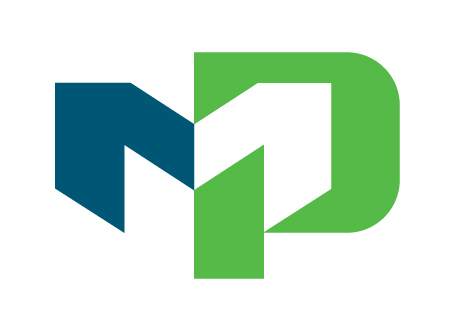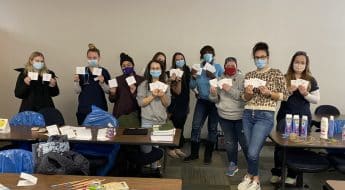Make A Plan And STICK To It!
Needlestick injuries are no laughing matter. That is why the Medical Assistant students funded by the U.S. Department of Labor Trade Adjustment Assistance Community College Career Training (TAACCCT) ACT 4 Healthcare Grant, have definitely made a plan to stay safe and are sticking to it!
Needlesticks are wounds caused by needles that accidentally puncture the skin. They are a hazard for people who work with hypodermic syringes and other needle equipment in the healthcare field. These injuries can occur at any time when people use, disassemble, or dispose of needles. When not disposed of properly, needles can become concealed in linen or garbage and injure other workers who encounter them unexpectedly. As Medical Assistants, the students in Moraine Park Technical College’s Medical Assistant program learn the best and safest techniques to perform venipuncture.
The students recently completed the Medical Assistant Laborator
Medical Assistants complete administrative and clinical tasks in the offices of physicians, hospitals, and other healthcare facilities and the employment of medical assistants is projected to grow 23 percent from 2014 to 2024, much faster than the average for all occupations. The growth of the aging baby-boom population will continue to increase demand for preventive medical services, which are often provided by physicians. As their practices expand, physicians will hire more assistants to perform routine administrative and clinical duties, allowing the physicians to see more patients (Bureau of Labor Statistics, U.S. Department of Labor, Occupational Outlook Handbook, 2016-17 Edition ).
Venipuncture techniques are also taught by Dwane in the Phlebotomy program. The phlebotomy certificate at MPTC offers a fast entry and meaningful career in the medical field. This two-course certificate prepares individuals to collect blood specimens via venipuncture and capillary puncture procedures for the purposes of laboratory analysis. The program will be offered at our West Bend campus this fall and on the Fond du Lac campus in spring.
The courses are taken in sequence over two semesters. The first course, Phlebotomy Essentials, provides the student with theory, safety techniques and regulations, infection control, and procedural applications and training. You will utilize medical terminology and basic laboratory equipment. The second course, Phlebotomy Clinical, places students at clinical sites. Upon completion of the certificate, students may take the national certification examination offered by the Board of Certification.
Employment of phlebotomists is projected to grow 25 percent from 2014 to 2024, much faster than the average for all occupations. Hospitals, diagnostic laboratories, blood donor centers, and other locations will need phlebotomists to perform bloodwork. . The median pay for phlebotomists is $32,710 per year or $15.72 per hour (Bureau of Labor Statistics, U.S. Department of Labor, Occupational Outlook Handbook, 2016-17 Edition ).
For more information on the Medical Assistant or Phlebotomy program click on the program name or call Moraine Park at 1.800.472.4554.


